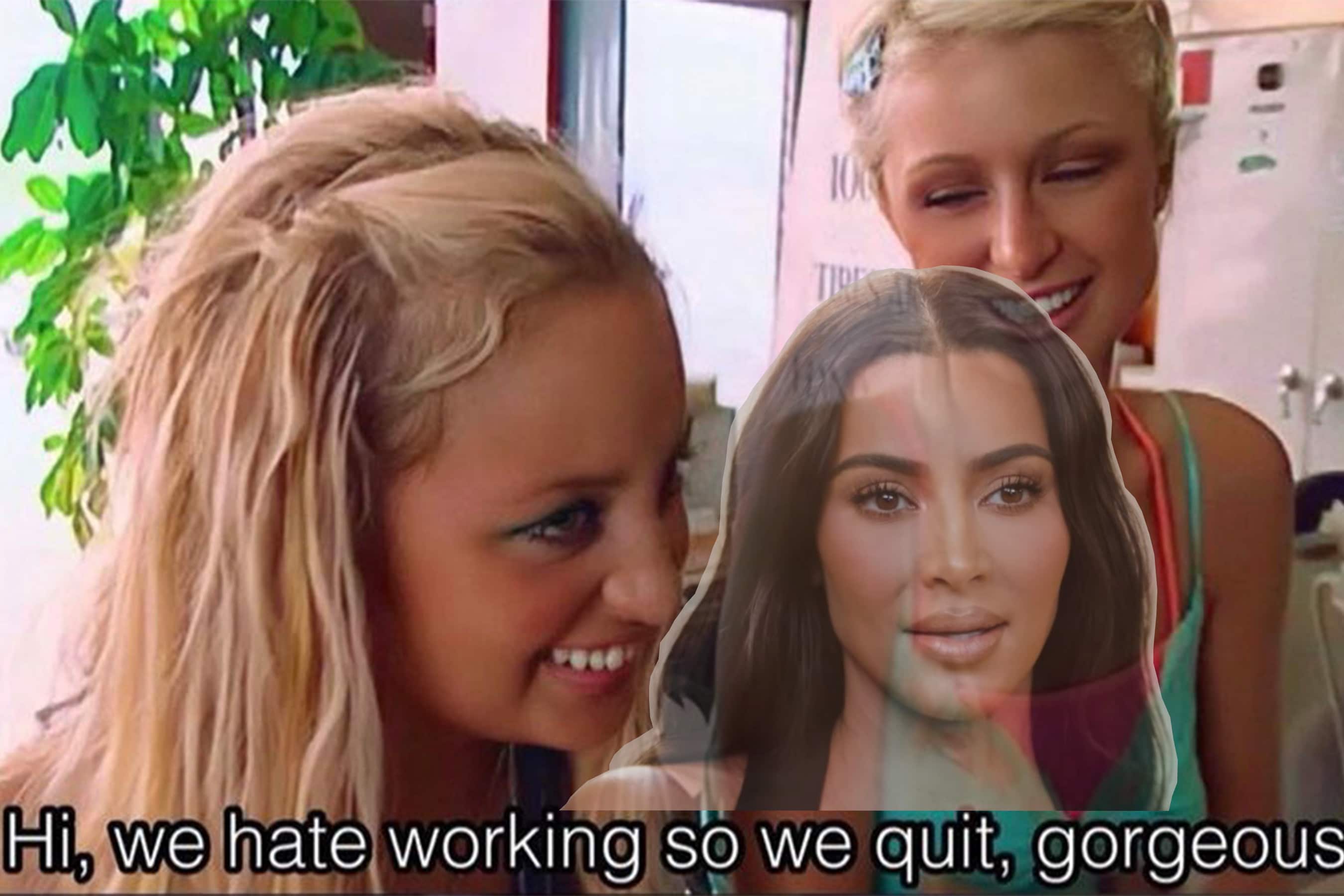
Every year it comes around. An initiative once rooted in the socialist women's suffrage movement in the early 1900s, International Women's Day morphed from a moment that called for basic rights like sex discrimination and voting rights into capitalism's handmaiden. It was an inevitable result for a social justice issue, especially one whose dedicated day is marked in the calendars of capitalist machines. We've seen it with Pride and Mardi Gras, where rainbow capitalism dilutes movements that were conceived amid protests where LGBTQI+ folks were assaulted by the police; bending dates of remembrance and solidarity into cheques they can collect after they splash "Love is Love" across their social media channels for long enough to seem meaningful.
Corporate feminism is the term used for the age of the #girlboss – the term coined by original girl boss and founder of Nasty Gal, Sophia Amoruso in 2014. And after a six-year boom where #girlboss culture reigned supreme, 2020's mandatory lockdowns and deescalation of 9-5 office hours as a result of the pandemic, gave us room to reexamine the headlock toxic productivity had us in. The result? The subsequent, slow death of the #girlboss and everything she, as the perfect picture of a university educated, predominantly white, cis, straight, wealthy woman stood for. Namely: the grind.
This International Women's Day, which fell on March 8, we were hopeful to see a change in the way the day has been marketed over the past decade. We have grown tired of the wealthy white woman panels and the keys to success that are peddled alongside their message, as though a woman's value is hinged solely on how hard they #bossbabed that year, without taking into account the many ways that the system gate keeps women of many intersections from accessing the same success as the Emily Weiss' of the world.
The corporate feminisation of IWD forgot to account for a huge percentage of women who never saw themselves in those welcomed onto panels, often for the sole reason that many women are not freely participating in capitalism to survive. When the pandemic hit, this reality became eerily clear. The women upholding society were not the ones selling products with targeted marketing and pale pink packaging. The women upholding society were frontline healthcare workers, teachers who had to lead students through school years over zoom, mothers who had to homeschool their children while running their businesses, women who work in warehouses and supermarkets, women in emergency services – whose career merits were hinged on the saving of lives and the running of civilisation, not their millionaire status.
The death of the #girlboss has been a trending topic for at least the first half of 2022. It is part of the inevitable vibe shift we have all become increasingly aware of these past months. So imagine our surprise, when just one day following IWD this year, Kim Kardashian's "sage" advice for women in business rang out on social media like a fever dream from 2016. “Get your fucking ass up and work," the billionaire advises in an interview with Variety. “It seems like nobody wants to work these days,” she sighs, her sisters nodding enthusiastically at her tone-deaf advice.
What Ms Kardashian has gravely failed to notice, is that a) the 2020 joke Du Jour was that we no longer dream of labour, and b) that not everyone is born into the 1%, and that many women, especially women of colour, trans women, queer women, disabled women, and many other women who exist within the varied intersections of identity, are working. In fact, they are the working poor who are propping up her unsustainable and ethically ambiguous brand for peanuts, in order for her to reach billionaire status.
The irony, is that Kardashian's observation is an astute one. Nobody does want to work these days. Why would we? We are collapsing under the weight of the #girlboss and her "same 24 hours in a day" rhetoric. With terms like "burnout" and "toxic productivity" becoming the buzzwords of the era while we are forced to participate in a societal and political framework that sees the rich get richer and the poor get poorer.
In March 2020 at the beginning of the COVID-19 outbreak, I wrote a piece about the crushing weight of our need to self-optimise in the face of a life-altering pandemic, and the ways that it exposed the dark underbelly of hustle-culture in the modern era. Fast forward two years, after a slew of global events that have only solidified our case against capitalism and corporate greed, and we still haven't quite worked out where a post-#girlboss era realistically leaves us when we remain in a capitalistic framework that disempowers and disenfranchises so many non-Kardashian types.
Because the reality, is that even though many of us are acutely aware of the problem, it is easier said than done to untangle ourselves from the mindset that we have been raised to embody for all of our working lives. Schools teach us that doing homework outside of school hours will better prepare us for the "real world", where overtime is a given and the lucky ones get a weekend, while we are sold the idea – largely thanks to the concept of the "American Dream" – that if you work hard enough at something, success is imminent. It is the same sentiment that Scott Morrison's false and disingenuous marketing slogan, "if you have a go, you get a go" reeks of. The idea that, under capitalism, all you need to do is work harder and you, too, can achieve the financial superiority that the Kardashians were born with, is, of course, to ignore all of the ways the working poor are blocked from doing so on a systemic level.
This, quite obviously, is the inherent issue with hustle culture and toxic productivity at large. Because even if some of us are able to shut our laptops on the weekend and pat ourselves on the back for lovingly telling ourselves that the emails can wait until Monday morning, so many of us also don't have a choice to make that call yet. As the #girlbosses put down their matcha lattes and monogrammed iPhone cases for some self-love time, will the individual act make room for Amazon warehouse workers to do the same? While we host the #girlboss' funeral, where does her legacy of hustling go?



